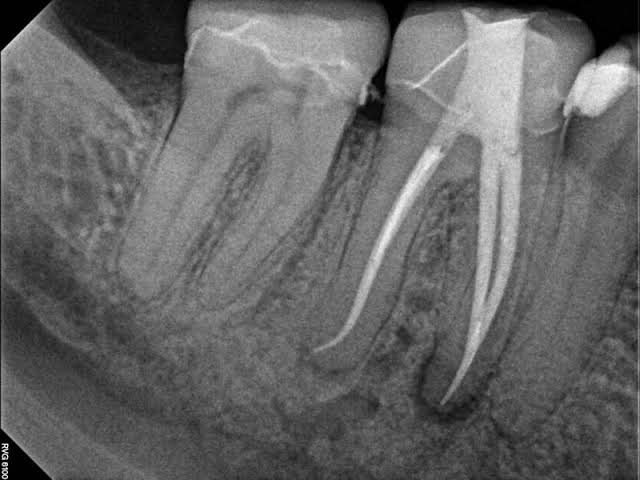Introduction to Root Canal Treatment (RCT) - Experience Pain Relief and Preserve Your Tooth
Root Canal Treatment, commonly known as RCT, is a dental procedure designed to save a severely damaged or infected tooth, relieving pain, and restoring oral health. This procedure becomes necessary when the dental pulp inside the tooth becomes infected or inflamed due to deep decay, cracks, or trauma. RCT involves removing the infected pulp, cleaning the root canals, and sealing them to prevent reinfection. At Earth Dental Hospital, we take pride in offering the best Root Canal Treatment in Patna, performed by our experienced endodontists, ensuring you receive top-tier care and exceptional outcomes.
Importance of RCT: Preserving Your Natural Teeth
Preserving your natural teeth is paramount to maintaining proper oral function and aesthetics. Root Canal Treatment plays a crucial role in this regard, as it allows you to retain your natural tooth, preventing the need for extraction. The procedure removes the infected pulp, disinfects the canals, and fills them with a biocompatible material. By doing so, RCT not only relieves pain but also restores the tooth’s function and prevents further oral health complications. Keeping your natural tooth intact also helps maintain proper jawbone structure and supports adjacent teeth, ensuring your smile remains healthy and functional.

Experienced Endodontists: Trust in Our Root Canal Experts
The success of Root Canal Treatment depends significantly on the skills and experience of the dentist performing the procedure. At Earth Dental Hospital, our team of endodontists are highly experienced and skilled in performing Root Canal Treatments. Their expertise allows them to navigate the intricate root canal system and ensure thorough cleaning and sealing, leading to successful outcomes. Our endodontists stay up-to-date with the latest advancements in the field and use state-of-the-art techniques and equipment to deliver precise and effective root canal treatments. When you choose Earth Dental Hospital, you can have complete confidence in the hands of our experienced root canal experts.
Signs You Might Need RCT: Recognizing Dental Discomfort
While not all dental problems require Root Canal Treatment, some signs indicate that you might need this procedure:
- Persistent Toothache: If you experience persistent, severe tooth pain, especially when biting or applying pressure, it could be a sign of an infected or inflamed dental pulp.
- Sensitivity to Hot or Cold: Increased sensitivity to hot or cold temperatures, even after the stimuli are removed, may indicate an issue with the dental pulp.
- Swelling or Tender Gums: Infection in the root canal may cause swelling or tenderness in the surrounding gums.
- Darkening of the Tooth: A discolored tooth may signify a dying dental pulp.
- Prolonged Sensitivity: If a tooth remains sensitive for an extended period, it may indicate that the dental pulp is affected.
If you experience any of these signs, it is crucial to seek dental attention promptly. Early detection and treatment of dental issues can prevent further damage and potentially save your tooth.
Root Canal Procedure: Pain-Free Restoration
Root Canal Treatment is a straightforward and pain-free procedure, thanks to advancements in dental technology and anesthesia. The procedure is typically performed in one or two visits, depending on the tooth’s complexity and the extent of the infection.
- Preparation: Before starting the procedure, our endodontist will administer local anesthesia to ensure you are comfortable during the treatment.
- Accessing the Pulp: Once the area is numb, our endodontist will create a small access hole in the tooth’s crown to reach the infected pulp.
- Removing the Infected Pulp: Using specialized dental instruments, the infected pulp is carefully removed from the root canals.
- Cleaning and Disinfecting: The root canals are meticulously cleaned and disinfected to eliminate any remaining bacteria.
- Filling and Sealing: After cleaning, the canals are filled with a biocompatible material called gutta-percha, and the access hole is sealed to prevent reinfection.
- Restoring the Tooth: In some cases, a dental crown may be placed on the treated tooth to strengthen and protect it, especially if the tooth was significantly decayed or weakened.
The Root Canal Treatment process is efficient and typically takes no longer than a routine dental filling. Our skilled endodontists ensure that the treatment is performed with precision and attention to detail to ensure the best possible results.
Pain Management and Comfort: Your Well-Being is Our Priority
We understand that dental procedures can cause anxiety and fear for some patients. At Earth Dental Hospital, we prioritize your comfort and well-being throughout the Root Canal Treatment process. Our team uses effective pain management techniques to ensure you feel minimal discomfort during the procedure. Our caring and compassionate approach creates a soothing and supportive environment, helping you feel relaxed and at ease during your visit.
Aftercare and Recovery: Nurturing Your Tooth’s Health
Following the Root Canal Treatment, our endodontist will provide you with detailed aftercare instructions. It is essential to follow these instructions diligently to promote healing and protect your treated tooth. Here are some essential aftercare tips:
- Pain Management: Over-the-counter pain medications can help manage any mild discomfort after the procedure.
- Oral Hygiene: Maintain good oral hygiene practices, including regular brushing, flossing, and rinsing with an antiseptic mouthwash.
- Avoid Chewing on Hard Foods: Refrain from chewing on hard or sticky foods immediately after the procedure to protect the treated tooth.
- Follow-Up Visits: Attend follow-up visits as scheduled to ensure proper healing and assess the success of the treatment.
Opening hours
Frequently Ask Questions
Root Canal Treatment, often referred to as endodontic therapy, is a dental procedure aimed at treating infections or damage within the tooth's pulp, where nerves and blood vessels reside. The procedure involves removing the infected or damaged tissue, cleaning, disinfecting, and sealing the tooth to prevent further infection.
A root canal is necessary when the pulp of a tooth becomes infected or inflamed due to deep decay, trauma, repeated dental procedures, or cracks in the tooth. Symptoms may include severe toothache, sensitivity to hot or cold, swelling, or a pimple on the gum.
Contrary to common misconceptions, modern root canal procedures are performed under local anesthesia, ensuring that patients feel minimal to no pain during the treatment. Most patients report feeling comfortable during the procedure and experience relief from the pain caused by the infected tooth.
The duration of a root canal treatment varies depending on the complexity of the case. Typically, a root canal procedure for a single tooth can be completed in one or two appointments, each lasting about 60 to 90 minutes.
Following a root canal, mild discomfort or sensitivity is common for a few days. Your dentist may prescribe pain medications or antibiotics if necessary. After the tooth has healed, a crown or filling is placed to protect and restore the tooth's function and appearance.
